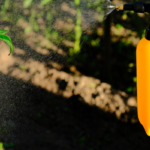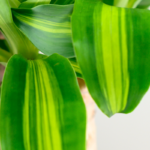Growing your own food is incredibly satisfying. Fueling your body with nutritious, home-grown fruits and vegetables is hard to beat. Part of growing healthy food is making sure you aren’t inadvertently adding toxic chemicals to your soil. Many gardeners recommend using rebar for tomatoes or climbing vegetable stakes, but is rebar safe for vegetable gardens?
Rebar is perfectly safe for use in vegetable gardens. It will rust over time, which can actually be incredibly beneficial for the iron levels in your soil. Rebar is composed of unfinished steel, which contains chemicals that naturally exist in the soil, such as iron, carbon, and chromium.
Keep reading to learn more about why rebar is a great addition to your garden.
Is Rebar Safe For Vegetable Gardens?
It’s normal to be concerned about toxic chemicals leaching into your garden soil. Railroad ties, for example, are often treated with creosote, a chemical that can harm soil and plants.
However, rebar is an untreated metal that is perfectly safe to use in your garden. Rebar is composed of carbon steel, which will not cause any harm to soil or plants. In fact, it can actually provide beneficial minerals to your soil over time.
Because rebar isn’t coated or treated with rust-preventing chemicals, it will rust when exposed to air and moisture. While rust seems like a bad thing to have in your soil, it’s actually a natural source of iron, which is a necessary component of healthy soil. In fact, many commercial fertilizers include iron.
Of course, moderation is key. Just like other minerals, it is possible to have too much iron in your soil. It’s extremely unlikely that rebar will deposit enough rust in your soil to cause a problem.
However, you should be aware of the signs of iron overload in your plants. If you notice these symptoms in your plants, you might consider using less rebar in your garden to reduce the amount of iron added to the soil. Here are some signs to look out for:
- Reduced or stunted growth
- Darkening/discolored leaves
- Weak, unhealthy root systems
Why Is Rebar Used In Vegetable Gardens?
Now that you know that rebar is safe for use in gardens, you might be wondering what people use it for. Of course, rebaris often used in construction, but what purpose does it serve in gardening?
The most common use for rebar in vegetable gardens is as a stake for climbing plants like peas and tomatoes. Offering support for these climbing plants allows them to grow vertically, decreasing the amount of space they take up. Of course, there are other uses for rebar in the garden: budget-friendly fencing, creative artwork, etc.
Final Thoughts
Rebar is a strong metal that you can add to your garden without worrying about it damaging your soil and plants. It’s great support for climbing plants, it slowly adds beneficial iron to the soil, and it’s incredibly versatile. No matter how you choose to use it, you’ll appreciate the many benefits of rebar in your vegetable garden.



